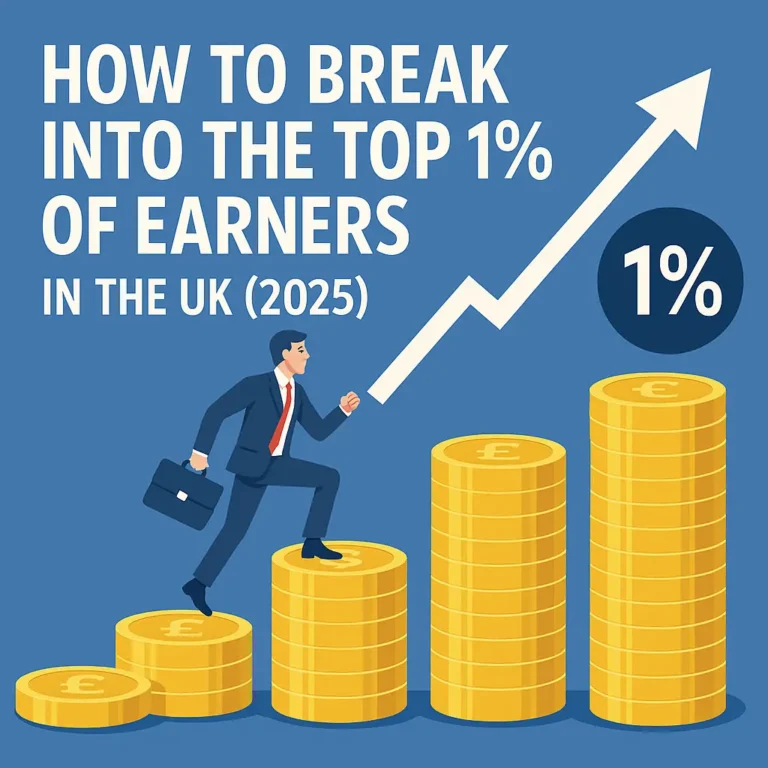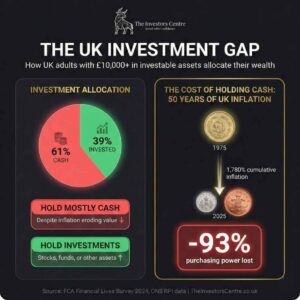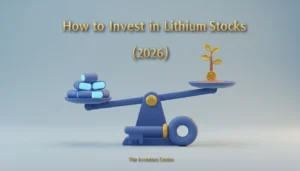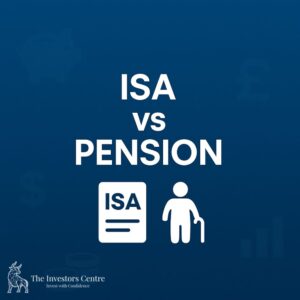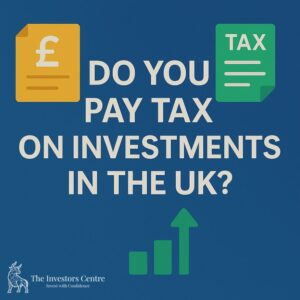
- expertise:
- CFD Trading, Forex, Derivatives, Risk Management
- credentials:
- Chartered ACII (2018) · Trading since 2012
- tested:
- 40+ forex & CFD platforms with live accounts

- expertise:
- Platform Testing, Cryptocurrency, Retail Investing
- credentials:
- Active investor since 2013 · 11+ years experience
- tested:
- 50+ platforms · 200+ guides authored

- expertise:
- Broker Comparison, ISA Strategy, Portfolio Management
- credentials:
- Active investor since 2013 · 11+ years experience
- tested:
- 40+ brokers with funded accounts

- expertise:
- CFD Trading, Forex, Derivatives, Risk Management
- credentials:
- Chartered ACII (2018) · Trading since 2012
- tested:
- 40+ forex & CFD platforms with live accounts

- expertise:
- Platform Testing, Cryptocurrency, Retail Investing
- credentials:
- Active investor since 2013 · 11+ years experience
- tested:
- 50+ platforms · 200+ guides authored

- expertise:
- Broker Comparison, ISA Strategy, Portfolio Management
- credentials:
- Active investor since 2013 · 11+ years experience
- tested:
- 40+ brokers with funded accounts
How We Test
Real accounts. Real money. Real trades. No demo accounts or press releases.
What we measure:
- Spreads vs advertised rates
- Execution speed and slippage
- Hidden fees (overnight, withdrawal, conversion)
- Actual withdrawal times
Scoring:
Fees (25%) · Platform (20%) · Assets (15%) · Mobile (15%) · Tools (10%) · Support (10%) · Regulation (5%)
Regulatory checks:
FCA Register verification · FSCS protection
Testing team:
Adam Woodhead (investing since 2013), Thomas Drury (Chartered ACII, 2018), Dom Farnell (investing since 2013) — 50+ platforms with funded accounts
Quarterly reviews · Corrections: [email protected]
Disclaimer
Not financial advice. Educational content only. We're not FCA authorised. Consult a qualified advisor before investing.
Capital at risk. Investments can fall. Past performance doesn't guarantee future results.
CFD warning. 67-84% of retail accounts lose money trading CFDs. High risk due to leverage.
Contact: [email protected]
Quick Answer...
In 2025/26, to be among the top 1% of UK earners, an annual income of at least £201,000 before taxes is required (based on HMRC tax year 2022-23 data, published March 2025). This elite group of approximately 340,000 individuals earns 13.3% of the UK’s total income and pays 28.2% of all income tax.

 UK New Clients
UK New Clients
61% of retail CFD accounts lose money when trading CFD’s with this provider.
What Does It Mean to Be in the Top 1% of UK Earners?
Being in the top 1% of UK earners places you among an elite group. Here’s what defines this exclusive bracket:
| Metric | Value (2024-25) |
|---|---|
| Minimum Income Threshold | £201000 per year |
| Number of Individuals | ~340000 |
| Share of UK Total Income | 13.3% |
| Share of Income Tax Paid | 28.2% |
| Average Monthly Pay (99th percentile) | £15510 |
| Tax Contribution Ratio | 2.1x their income share |
Source: HMRC Personal Incomes Statistics 2022-23, TaxPayers’ Alliance 2024
UK Income Percentile Thresholds: The Full Picture
Understanding where you sit in the UK income distribution is crucial for financial planning. Here’s the complete breakdown of income percentiles:
| Percentile | Income Before Tax | What This Means |
|---|---|---|
| 99th (Top 1%) | £201000 | Elite earners |
| 99.5th (Top 0.5%) | ~£280000 | Ultra-high earners |
| 99.9th (Top 0.1%) | ~£750000 | Exceptional wealth |
| 95th (Top 5%) | ~£82000-£87000 | High earners |
| 90th (Top 10%) | £64800 | Above average |
| 50th (Median) | £28400 | Middle income |
| 10th Percentile | £15500 | Lower income |
Source: HMRC Tax Year 2022-23 Data (Published March 2025)
How Has the Top 1% Threshold Changed Over Time?
| Tax Year | 99th Percentile | Year-on-Year Change |
|---|---|---|
| 2018-19 | £175000 | - |
| 2019-20 | £175000 | 0% |
| 2020-21 | £183000 | +4.6% |
| 2021-22 | £199000 | +8.7% |
| 2022-23 | £201000 | +1.0% |
The modest 1% increase from 2021-22 to 2022-23 is due to more taxpayers entering the system, which expands the percentile denominator and reduces the threshold for each percentile.
Who Are the Top 1%? Demographics Breakdown
The top 1% isn’t a random cross-section of society. Research from the Institute for Fiscal Studies reveals distinct patterns:
| Characteristic | Top 1% | Top 0.1% |
|---|---|---|
| Male | 83% | 89% |
| Female | 17% | ~11% |
| Aged 45-54 | >33% | >40% |
| Based in London | 35% | ~50% |
| London + South East | ~60% | ~71% |
| Business Owners | ~33% | Higher |
| Company Directors | - | 33% |
Source: IFS Briefing Note BN253 (2019)
Key Gender Insights
- The 17% female figure has risen from just 12% in 2000-01
- Men are 4x more likely than women to be in the top 1%
- To be top 1% of men requires £200,000; top 1% of women requires ~£100,000
- In finance/professional services, women occupy 19.4% of top 1% roles (down from 19.7% pre-COVID)
Where Does Top 1% Income Come From?
Contrary to popular belief, not all top earners rely solely on salaries. Here’s how the top 1% and top 0.1% generate their income:
| Income Source | Top 1% | Top 0.1% |
|---|---|---|
| Employment Income | ~60% | ~53% |
| Partnership Income | ~18% | ~23% |
| Dividends | ~11% | ~13% |
| Self-Employment | ~4% | - |
| Pensions | ~2.5% | - |
| Other | ~5% | ~5% |
Key Finding: Partnership and dividend income account for over 25% of total top 1% income, and over 33% for the top 0.1%. These income types are often taxed at lower rates than employment income, benefiting business owners disproportionately.
Business Ownership Among the Top 1%
Among the top 1%, approximately one-third are business owners:
- 14% – Partnership income as main source (hedge funds, law firms, accounting firms, medical practices)
- 11% – Dividend income as main source (company owner-managers)
- 4% – Self-employment income as main source
How Does This Compare to UK Average Salaries?
To put the top 1% threshold into perspective, let’s look at what the average UK worker earns:
| Metric | Value | Year |
|---|---|---|
| Median Full-Time Annual Salary | £37430 | April 2024 |
| Previous Year Median (Full-Time) | £35004 | April 2023 |
| Year-on-Year Increase | +6.9% | 2023-24 |
| Median All Workers (inc. Part-Time) | £31602 | April 2024 |
| Median Weekly (Full-Time) | £728 | April 2024 |
| Median Weekly (Full-Time) | £767 | April 2025 |
| Top 1% Monthly Pay | £15510 | Q3 2024 |
Source: ONS Annual Survey of Hours and Earnings (ASHE) 2024
Regional Salary Comparison (Full-Time Median 2024)
| Region | Median Annual Salary | vs UK Average |
|---|---|---|
| London | £47455 | +27% |
| South East | £39038 | +4% |
| Scotland | £38315 | +2% |
| UK Average | £37430 | - |
| North East | £32960 | -12% |
How Can You Go from Top 5% to Top 1%?
Understanding the tax implications at each level is crucial for financial planning. Here’s a comparison of take-home pay at different income levels:
| Category | UK Average | Top 5% (~£85k) | Top 1% (£201k) |
|---|---|---|---|
| Gross Salary | £37430 | £85000 | £201000 |
| Personal Allowance | £12570 | £12570 | £0 |
| Income Tax | ~£4972 | ~£21432 | ~£74139 |
| National Insurance | ~£1990 | ~£4064 | ~£6392 |
| Total Tax | ~£6962 | ~£25496 | ~£80531 |
| Take-Home Pay | ~£30468 | ~£59504 | ~£120469 |
| Effective Tax Rate | ~18.6% | ~30% | ~40.1% |
Note: Calculations based on 2025-26 tax rates. Figures are approximate.
What Are the Tax Implications for High Earners?
UK Income Tax Rates 2025-26
| Band | Rate | Income Range |
|---|---|---|
| Personal Allowance | 0% | Up to £12570 |
| Basic Rate | 20% | £12571 - £50270 |
| Higher Rate | 40% | £50271 - £125140 |
| Additional Rate | 45% | Over £125140 |
The Hidden 60% Tax Trap
Many high earners are caught off guard by the Personal Allowance taper:
| Income Level | Effect |
|---|---|
| £100000 | Personal Allowance taper begins (reduced by £1 for every £2 over) |
| £100000 - £125140 | Effective 60% marginal rate in this bracket |
| £125140+ | Personal Allowance fully lost - 45% rate applies |
Fiscal Drag Alert: All tax thresholds are frozen until April 2028. Combined with wage inflation, this ‘stealth tax’ is pulling more people into higher brackets each year.
Where Do the Top 1% Live?
The top 1% are increasingly concentrated in specific areas of the UK:
| Statistic | Value |
|---|---|
| Constituencies containing 50% of top 1% | 65 (out of 650) |
| Of which in London/South East | 52 |
| Highest mean income area | Kensington & Chelsea (£209000) |
| Highest median income area | City of London (£60700) |
| Lowest mean income area | Blackpool (£27000) |
| Lowest median income area | Pendle (£23100) |
What Does Top 1% Mean Regionally?
| Region/Demographic | Threshold to be Top 1% Locally |
|---|---|
| London (men aged 45-54) | ~£700000+ |
| London (general) | ~£300000+ |
| UK National | £201000 |
| Wales / North East / NI | ~£100000 |
What Professions Could Propel You into the Top 1%?
While individual salaries vary widely, these professions have the highest median salaries according to ONS ASHE 2024 data:
| Profession | Median Salary |
|---|---|
| CEO / Senior Officials | £88056 |
| Marketing / Sales / Advertising Directors | £87309 |
| IT Directors | £86033 |
| Financial Managers / Directors | £80000+ |
| Aircraft Pilots | £78000+ |
| Medical Practitioners | £70000+ |
| Legal Professionals | £24000-£250000 (varies) |
Note: These are median salaries. Top performers in finance, law, and medicine can earn significantly more. Investment bankers, hedge fund managers, and senior partners at major law firms frequently exceed £500,000+.
Why Is Being a Top 1% Earner Difficult to Maintain?
The top 1% is not a stable group. There is significant movement in and out of this income bracket over time:
| Time Period | Retention Rate |
|---|---|
| After 1 year | 74-75% remain |
| After 5 years | ~50% remain |
| Every year for 16 years (2000-2016) | Only 11% remained |
Lifetime Probability of Reaching the Top 1%
| Cohort (Born 1963) | Ever in Top 1% (2000-2016) |
|---|---|
| All people | 3.4% |
| Men only | 5.5% |
| In any given year | ~1.1% |
Key Insight: Someone is approximately 3x more likely to be in the top 1% at some point in their life than in any single year.
How Is Wealth Different from Earnings?
Being in the top 1% of income does not automatically mean being in the top 1% of wealth. These are different measures with imperfect overlap:
| Threshold | Amount |
|---|---|
| Top 1% Income | £201000 per year |
| Top 1% Net Worth | ~£4400000 |
| Top 10% Share of UK Wealth | ~50% |
What Are Other Ways to Break into the Top 1%?
Apart from high-paying jobs, other strategies to boost your income include:
Starting a Business
Entrepreneurship can lead to significant earnings. Many top earners derive substantial income from business ventures. Business owners account for only ~20% of the overall workforce but ~33% of the top 1%.
Diversifying Income Streams
Diversifying can reduce dependency on a single source and take advantage of lower tax rates on non-salary earnings. Consider: rental income, dividend income, partnership income, and capital gains.
Higher Education and Certifications
Advanced degrees and professional certifications (CFA, ACCA, law qualifications) can lead to higher-paying roles and faster career progression.
What Can We Expect in 2026?
Based on current trends, here are projections for key metrics:
| Metric | 2022-23 (Actual) | 2025-26 (Projected) |
|---|---|---|
| Top 1% Threshold | £201000 | £210000 - £220000 |
| Median Full-Time Salary | £37430 (2024) | £39000 - £40000 |
| Additional Rate Taxpayers | 1.14 million | 1.3 - 1.4 million |
Key Factors Affecting 2026
- Fiscal Drag: Frozen thresholds + wage inflation = more people in higher brackets
- Non-Dom Abolition: Some high earners may leave, but impact is disputed
- Employer NI: Increased to 15% from April 2025
- Capital Gains Tax: Increased to 18%/24% from October 2024
Are Millionaires Really Fleeing the UK?
Important Context: This data is heavily contested. The source (Henley & Partners) sells residence/citizenship-by-investment services and has a commercial interest in promoting fears of wealth migration.
| Claim (Henley & Partners) | Value |
|---|---|
| Millionaires projected to leave UK (2025) | 16500 |
| Millionaires left UK (2024) | 10800 |
| Estimated wealth leaving | USD $91.8 billion |
Balanced View: At current claimed rates, it would take 300+ years for all UK millionaires to leave. The ‘exodus’ narrative has been widely covered but is disputed by independent researchers.
How to Break into the Top 1% of Earners in the UK: Verdict
Breaking into the UK’s top 1% requires earning at least £201,000 annually. While this may seem like a lofty goal, there are multiple paths to get there: high-paying careers in finance, law, medicine, or technology; starting your own business; or building multiple income streams over time.
Remember that the top 1% is not a permanent club – half of those who enter will leave within five years. Focus on building sustainable wealth through smart financial planning, diversified investments, and continuous career development.
FAQs
What is the income threshold to be in the top 1% of earners in the UK?
Based on the latest HMRC data (tax year 2022-23, published March 2025), you need an annual income of at least £201,000 before taxes to be in the top 1% of UK earners.
How does the UK tax system affect the take-home pay of the top 1%?
The UK uses a progressive tax system. Someone earning £201,000 would pay approximately £80,500 in income tax and National Insurance, leaving a take-home pay of around £120,500 per year. The effective tax rate at this level is approximately 40%.
What professions are most likely to place someone in the top 1%?
The highest-paying professions include: CEOs and senior executives (median £88,056), IT and marketing directors (£86,000+), financial managers, investment bankers, hedge fund managers, senior partners at law firms, and specialist medical practitioners. However, reaching £201,000+ typically requires being at the top of these fields.
Can someone achieve top 1% wealth without a top 1% salary?
Yes. Top 1% wealth (approximately £4.4 million net worth) can be achieved through: investing in property and stocks over time, building a successful business, leveraging compound interest, and diversifying income streams. Many wealthy individuals built their wealth gradually rather than through high salaries.
What percentage of the UK's total income is earned by the top 1%?
The top 1% of earners account for approximately 13.3% of the UK’s total income (2024-25). They also pay 28.2% of all income tax collected – more than double their share of income.
How many additional rate taxpayers are there in the UK?
As of 2024-25, there are approximately 1.14 million additional rate taxpayers (earning over £125,140) in the UK. This represents a 24% increase from 923,000 in 2023-24, largely due to frozen tax thresholds (fiscal drag).
References
- HMRC Personal Incomes Statistics 2022-23 (Published March 2025) https://www.gov.uk/government/statistics/personal-incomes-statistics-for-the-tax-year-2022-to-2023/personal-incomes-statistics-2022-to-2023-commentary
- Institute for Fiscal Studies – The Characteristics and Incomes of the Top 1% (BN253) https://ifs.org.uk/publications/characteristics-and-incomes-top-1
- TaxPayers’ Alliance – Share of Income Tax Paid by Percentile (2024) https://www.taxpayersalliance.com/briefing_share_of_income_tax_paid_by_percentile
- Office for National Statistics – Annual Survey of Hours and Earnings (ASHE) 2024 https://www.ons.gov.uk/employmentandlabourmarket/peopleinwork/earningsandworkinghours/bulletins/annualsurveyofhoursandearnings/2024
- UK – Income Tax Rates and Personal Allowances 2025-26 https://www.gov.uk/income-tax-rates
- HMRC Table 2.4 – Shares of Total Income Tax Liability https://www.gov.uk/government/statistics/shares-of-total-income-before-and-after-tax-and-income-tax-for-percentile-groups
- House of Commons Library – Average Earnings by Age and Region (CBP-8456) https://commonslibrary.parliament.uk/research-briefings/cbp-8456/
- Tax Justice Network – The Millionaire Exodus Myth (2025) https://taxjustice.net/press/millionaire-exodus-did-not-occur-study-reveals/
- ONS Wealth and Assets Survey https://www.ons.gov.uk/peoplepopulationandcommunity/personalandhouseholdfinances/incomeandwealth/bulletins/householdincomeinequalityfinancial/financialyearending2024






